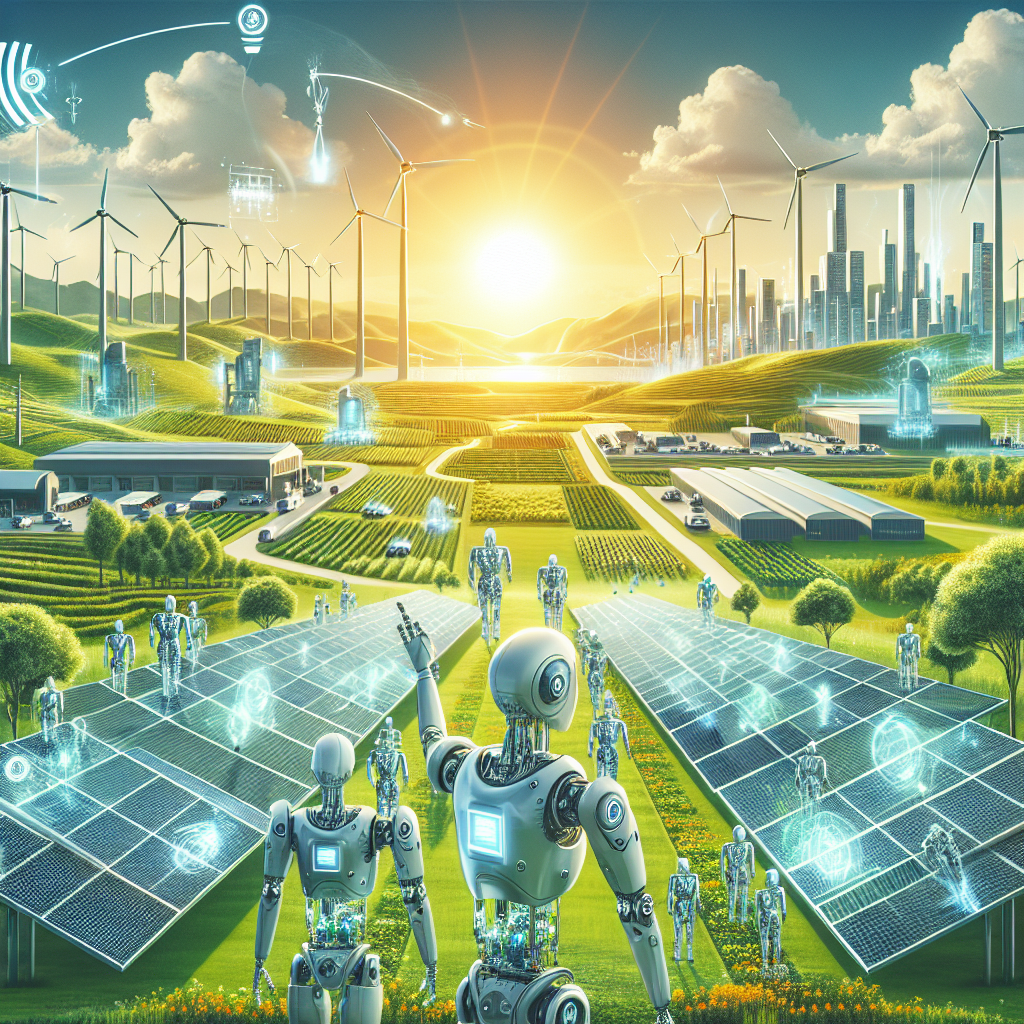Artificial Intelligence (AI) has been making waves in various industries, and the energy sector is no exception. With the increasing demand for clean and sustainable energy sources, AI is playing a crucial role in revolutionizing the way we generate, distribute, and consume energy. From optimizing power grids to improving energy efficiency, AI is paving the way for a more sustainable future. In this article, we will explore how AI is transforming the energy industry and the key benefits it brings to the table.
1. Optimizing Power Grids:
One of the key areas where AI is making a significant impact in the energy industry is in optimizing power grids. Power grids are complex systems that require constant monitoring and management to ensure a stable supply of electricity. AI algorithms can analyze vast amounts of data in real-time to predict energy demand, identify potential failures, and optimize the distribution of energy across the grid.
By using AI-powered predictive analytics, energy companies can anticipate fluctuations in energy demand and adjust their operations accordingly. This not only helps in reducing downtime and improving the overall efficiency of the grid but also in reducing costs and minimizing environmental impact.
2. Improving Energy Efficiency:
Another important aspect of AI in the energy industry is its ability to improve energy efficiency. AI algorithms can analyze energy consumption patterns and identify areas where energy is being wasted. By leveraging AI-powered solutions, companies can optimize their energy usage, reduce waste, and lower their carbon footprint.
For example, AI can be used to optimize heating, ventilation, and air conditioning (HVAC) systems in buildings to ensure that energy is used efficiently. By analyzing data on temperature, occupancy, and weather conditions, AI algorithms can adjust the settings of HVAC systems in real-time to minimize energy consumption while maintaining a comfortable environment for occupants.
3. Enhancing Renewable Energy Integration:
Renewable energy sources such as solar and wind power are becoming increasingly popular as the world moves towards a more sustainable energy future. However, integrating renewable energy sources into the existing power grid can be a complex and challenging task. AI can help in overcoming these challenges by predicting renewable energy generation, optimizing energy storage, and balancing supply and demand in real-time.
AI algorithms can analyze weather patterns, solar irradiance, wind speed, and other factors to predict the output of renewable energy sources. This information can then be used to optimize energy storage systems, such as batteries, to store excess energy when generation is high and release it when demand is high. By leveraging AI, energy companies can maximize the use of renewable energy sources and reduce their reliance on fossil fuels.
4. Predictive Maintenance:
AI is also revolutionizing the way energy companies conduct maintenance of their infrastructure. By using AI-powered predictive maintenance solutions, companies can identify potential equipment failures before they occur, enabling them to take proactive measures to prevent downtime and minimize disruptions to the grid.
AI algorithms can analyze sensor data from equipment such as transformers, generators, and transmission lines to detect anomalies and predict when maintenance is required. This proactive approach to maintenance not only reduces costs associated with downtime but also extends the lifespan of equipment, leading to a more reliable and sustainable energy infrastructure.
5. FAQs:
Q: How is AI helping in reducing carbon emissions in the energy industry?
A: AI is helping in reducing carbon emissions in the energy industry by optimizing energy usage, integrating renewable energy sources, and improving energy efficiency. By using AI-powered solutions, companies can identify areas where energy is being wasted, optimize the use of renewable energy sources, and reduce their reliance on fossil fuels, leading to a reduction in carbon emissions.
Q: What are some challenges in implementing AI in the energy industry?
A: Some of the challenges in implementing AI in the energy industry include data quality and availability, regulatory hurdles, and the need for skilled personnel. AI algorithms require vast amounts of data to train and operate effectively, and ensuring the quality and availability of this data can be a challenge. Regulatory hurdles related to data privacy and security can also pose obstacles to the implementation of AI in the energy industry. Additionally, there is a need for skilled personnel who can develop, deploy, and maintain AI solutions in the energy sector.
Q: How can AI help in optimizing energy storage systems?
A: AI can help in optimizing energy storage systems by analyzing data on energy generation, consumption, and storage to determine the most efficient way to store and release energy. By predicting energy demand and generation, AI algorithms can optimize the charging and discharging of energy storage systems to ensure that energy is used efficiently and effectively. This not only helps in maximizing the use of renewable energy sources but also in reducing costs and minimizing environmental impact.
In conclusion, AI is revolutionizing the energy industry by optimizing power grids, improving energy efficiency, enhancing renewable energy integration, and enabling predictive maintenance. By leveraging AI-powered solutions, energy companies can reduce costs, minimize environmental impact, and move towards a more sustainable energy future. With the rapid advancements in AI technology, the possibilities for innovation in the energy sector are endless, and the potential for a greener and more sustainable future is within reach.

